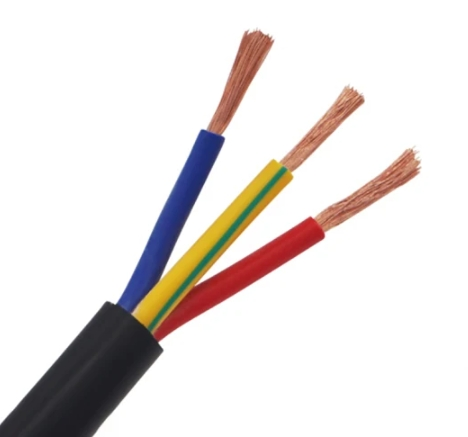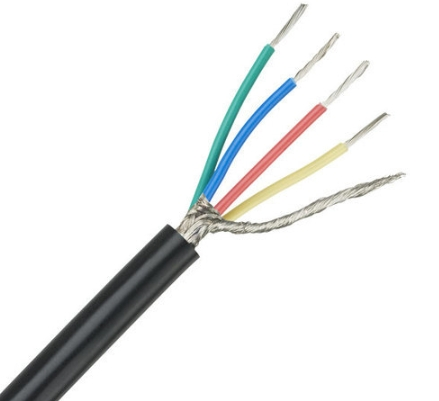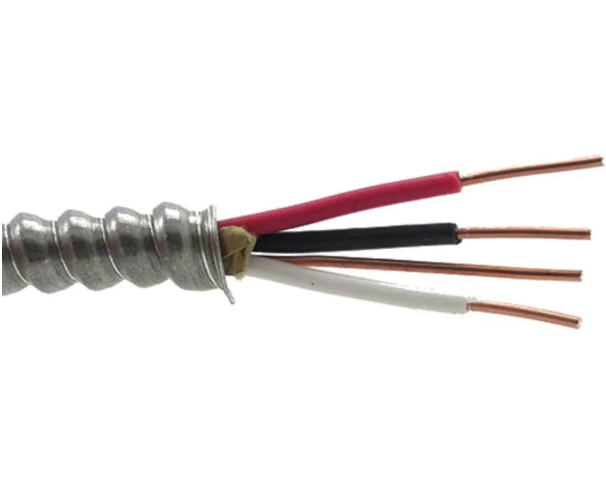Are you in the market for a reliable and durable wire option for your electrical projects? Look no further than Teflon wire! This high-quality material is known for its exceptional heat resistance and non-stick properties, making it a popular choice among professionals in various industries. If you’re looking to learn more about the benefits of Teflon coated wire and where to find it, you’ve come to the right place. Let’s dive into the world of Teflon insulated wire and see why it’s a must-have for your next project.
When it comes to selecting the best materials for your electrical needs, Teflon cable stands out as a top contender. Whether you’re working on a small repair job or a large-scale project, Teflon wire is sure to meet your needs with ease. In our business blog, we’ll explore the many advantages of Teflon wire and provide you with valuable information on where to purchase it.
What Is A Teflon Wire?
Teflon wire is set apart in the electrical and electronics industry by its exceptional construction and performance. At the core of wire lies a pure copper or tinned copper conductor coated with Teflon wire insulation, which provides unparalleled protection against extreme temperatures, corrosive chemicals, and electrical interference. Teflon wire excels in environments that ordinary wire cannot. This ruggedness provides Teflon jacketed wire with the ability to operate reliably over a wide temperature range from -65°C to +260°C.
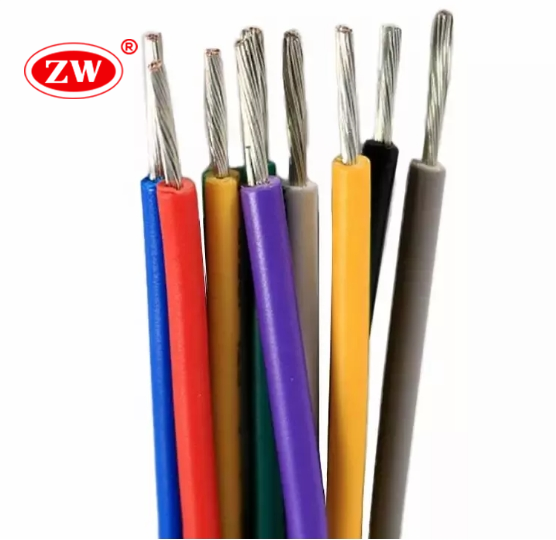
Teflon wires have the special quality of being the best option for a variety of applications for the reason of their exceptional versatility. Let’s now explore several applications for Teflon cables!
What is Teflon wire used for?
- PTFE wire is able to withstand extreme environmental conditions, including severe temperature fluctuations and exposure to chemicals. It is therefore widely used in aerospace applications. Its high temperature resistance ensures reliable the performance of critical electrical systems in aircraft and spacecraft.
- In the medical field, PTFE covered wires offer excellent assurance and range when handling medical devices that require a smooth coating. Precision medical devices, surgical tools, and diagnostic equipment favor it as a result of its strong temperature and chemical resistance.
- Teflon cables are very durable and resistant to heat. In the car sector, this is very advantageous. Wires are subjected to harsh environments and elevated temperatures in engine compartments and transmission systems. The qualities of Teflon keep cars safe and operational.
- For the electronics industry, Teflon insulated hookup wire is a necessary component, particularly for applications requiring fast data transfer. It reduces electrical interference thanks to its superior insulating qualities. As a result, Teflon wire uses include applications in computer networks, communications equipment, and electronic devices, where its properties ensure clear and uninterrupted signals.
When it comes to choosing between Teflon coated electrical wire and PVC, it’s important to consider the qualities of each. Come along with us as we determine which choice is best for you!
Teflon wire vs PVC
Temperature Tolerance
- Teflon wire: Teflon wire has a wide temperature range. It operates within a standard temperature range of -65°C to +260° it is suitable for tough environments and performs well in those with large temperature fluctuations.
- PVC: PVC wire has a more limited temperature range. Typically, this range is from -40°C to +105°C, so it can only be used in less demanding applications.
Chemical Resistance
- Teflon wire: Teflon wire has an extreme level of resistance to caustic substances, oils, and solvents. Teflon wire is perfect for applications requiring chemical exposure or for use in severe industrial environments.
- PVC: Although PVC can tolerate some chemical exposure, it does not provide the same degree of protection and may break down more quickly in the presence of irritants.
Durability and Flexibility
- Teflon wire: The durability of Teflon wire in extreme conditions does not affect its elasticity. It remains flexible and easy to handle even at low temperatures. Teflon wire is essential for installations in complex or tight spaces.
- PVC: PVC wire is also flexible. However, it may become brittle and less durable at lower temperatures or when exposed to harsh conditions for long periods.
Cost Considerations
- Teflon wire: Teflon wire price is more expensive initially. However, it may offer better long-term value because of its longer life and greater reliability.
- PVC: The affordability of PVC wire is one of its key benefits. It is a more affordable option compared to PTFE insulation wire and is suitable for projects that do not require the superior performance.
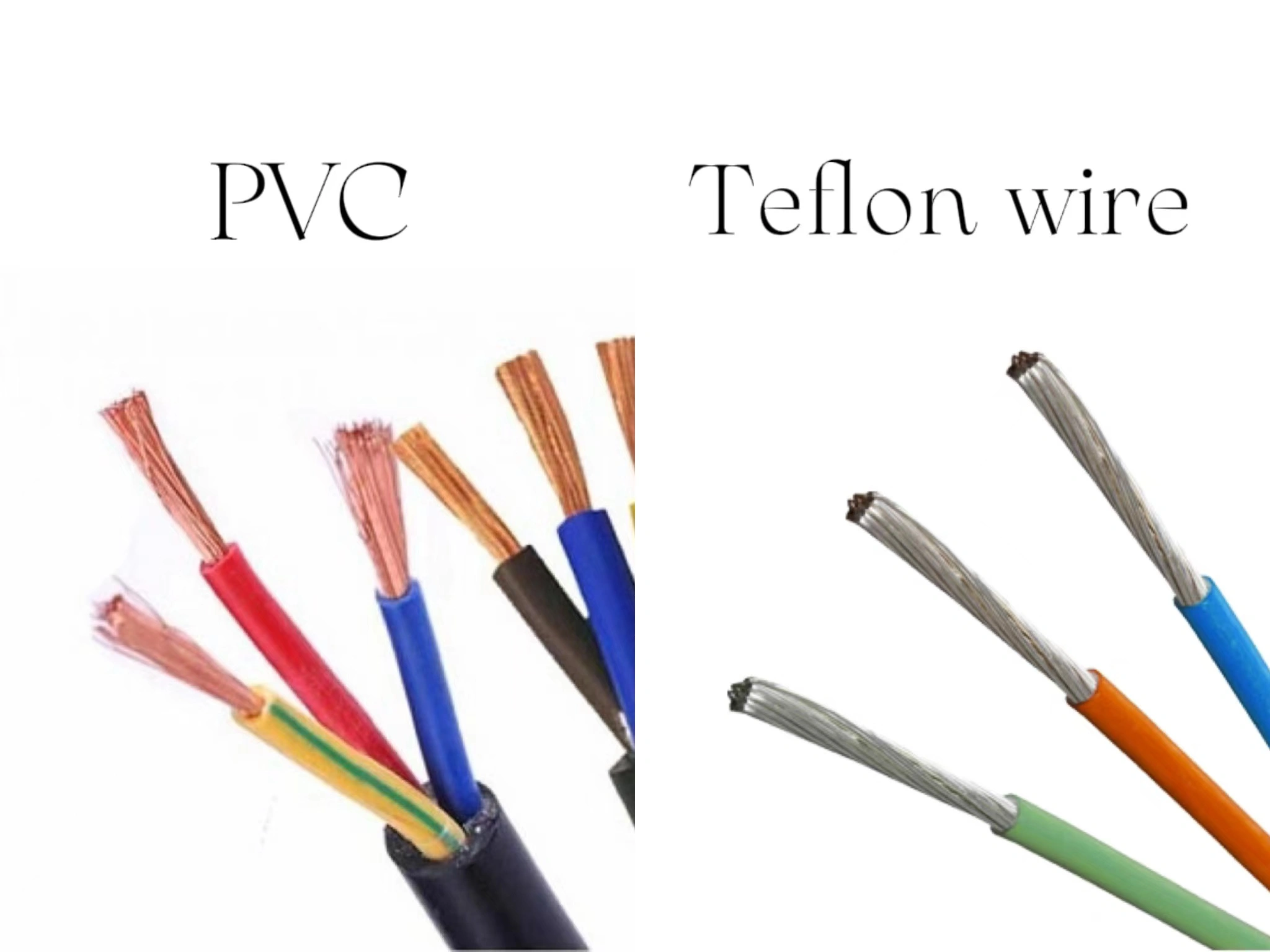
Please check out the PVC cable if you need more information
How to strip Teflon wire?
Embarking on the meticulous process of stripping Teflon wire, it’s essential to follow a structured approach to keep the integrity of the wire :
Step 1: Selecting the Appropriate Tools
Getting the appropriate tools for the project is the emphasis of the following step:
- Tool Type: First we must use a precision wire stripper designed for Teflon wire insulation. This is capable of stripping the insulation without damaging the internal conductors.
- Preparation: Ensuring the wire stripper is set to the correct diameter of the Teflon wire prevents accidental cutting into the wire itself.
Step 2: Preparing the Wire
Preparation is key to a successful stripping:
- Measuring: Determining the exact length of insulation to be removed and marking it accurately on the wire sets the stage for a precise operation.
- Cutting Technique: A firm, yet careful rotation of the wire stripper around the marked area scores the insulation without slicing the wire beneath.
Step 3: Executing the Strip
With the groundwork laid, We move forward with the stripping process:
- Insulation Removal: We gently pull the scratched insulation away from the wire until it comes completely off, please do not use too much force and cause damage to the wire.
- Inspection and Final Touches: Once we have thoroughly inspected the stripped wires, they are lightly cleaned as necessary to prepare them for use.
- Connection Readiness: Finally, Teflon wire is ready for soldering or connecting, with attention to ensuring a clean, conductive contact point.

By meticulously following these steps, we can strip Teflon wire effectively, preserving its high-performance qualities for seamless integration into my projects. This careful approach guarantees the wire’s functionality and longevity, ensuring it meets the rigorous demands of its application.
How do we choose high-temperature Teflon wires?
- Identify the maximum operation temperature. Choose Teflon high temperature wires rated above this temperature, ensuring they withstand the environment. Teflon wires typically handle -65°C to +260°C.
- Assess exposure to chemicals, oils, or abrasion. Select Teflon wire insulation type (e.g., PTFE, FEP, PFA) that matches your specific environmental resilience needs.
- Assure the wires support your application’s voltage and current demands by selecting the appropriate wire gauge and insulation thickness for optimal electrical performance.
- Opt for wires meeting industry standards and certifications (like UL listings) to adhere to safety and quality regulations in specialized fields.
- Consider the installation complexity of environmental. Choose wires with suitable flexibility and configuration (single-core or multi-core) for easy routing and installation.
- Prioritize wires from reputable manufacturers with proven quality. Research and recommendations can guide us to reliable products that fulfill our demands of application.
By choosing ZW cable Teflon wire manufacturer and related products , we can trust that you are getting a reliable and manageable solution for all your wiring needs.
FAQs:
What is Teflon made from?
Teflon wire is a high molecular weight polymer composed entirely of carbon and fluorine atoms. This fluorocarbon solid has excellent resistance to high temperatures, chemical reactions and electrical interference. The unique molecular structure of PTFE is characterized by a chain of carbon atoms completely surrounded by fluorine atoms, resulting in remarkable properties such as non-stickiness, low friction and non-reactivity to a wide range of substances. These properties make PTFE a versatile material.
ptfe wire vs silicone
- Conductor Composition: The conductors of PTFE wire are typically silver or nickel plated copper. This plating enhances its electrical conductivity and corrosion resistance. This is effective in environments where durability and reliable signal transmission are critical. In contrast, silicone wire typically uses pure or tinned copper as the conductor material.
- Temperature Tolerance: PTFE wires have a temperature range of -65°C to +260°C, exceeding the -60°C to +200°C range of silicone welding wire. As a result, PTFE wire is preferred for extreme temperature applications in industries such as aerospace and chemical processing.
- Chemical Resistance: When it comes to chemical resistance, PTFE wire excels. It resists virtually all industrial chemicals and solvents, ensuring its integrity in harsh chemical environments. Silicone wire is resistant to moisture and UV rays, but its chemical resistance is not comparable to PTFE.
- Flexibility: Flexibility is where silicone wire excels. The inherent flexibility of silicone wire makes it easier to install in tight spaces and complex structures. This property, combined with its heat resistance, makes silicone wire ideal for dynamic applications that require movement and flexing.
- Cost Effectiveness: When choosing between PTFE and silicone wire, the cost factor plays a critical role. Polytetrafluoroethylene (PTFE) wire with its specialized properties is typically more expensive than silicone wire, making silicone wire a cost-effective choice for applications where chemical and temperature resistance are not required.
Why Use Teflon Coated Wire?
- Teflon wire is renowned for its exceptional high temperature resistance, capable of withstanding extreme environments from -90°C to +260°C. This property makes it indispensable in industries where wires must perform reliably under harsh conditions.
- Its chemical and moisture resistance enhances its utility across a broad range of applications. The inertness and hydrophobicity of PTFE to most chemicals provides stable performance in environments susceptible to chemicals and moisture.
- Additionally, Teflon copper wire boasts a low dielectric constant, minimizing electrical conductivity and signal loss. This feature is crucial in telecommunications and high-frequency applications, ensuring integrity and efficiency in signal transmission.


